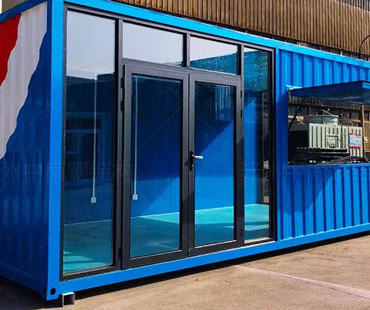Container management plays a pivotal role in the efficiency and effectiveness of global supply chains. With the increasing complexity of logistics, understanding the key strategies and challenges associated with container management is essential for businesses seeking to optimize their operations.
1. Understanding Container Management
Container management refers to the processes involved in the handling, tracking, and optimization of shipping containers throughout the supply chain. Effective container management ensures that the right containers are available at the right time and place, reducing delays and improving overall efficiency. With the rise of e-commerce and globalization, the importance of container management has grown exponentially.
2. Key Strategies for Effective Container Management
A. Real-Time Tracking and Monitoring
Implementing real-time tracking technologies, such as GPS and RFID, enables businesses to monitor the location and status of containers throughout their journey. This visibility allows companies to react quickly to delays or disruptions, reducing the risk of lost shipments and enhancing customer satisfaction.
B. Data Analytics and Predictive Modeling
Utilizing data analytics can significantly improve decision-making in container management. By analyzing historical data and trends, businesses can forecast demand more accurately, optimize container utilization, and minimize empty miles. Predictive modeling can also help anticipate potential issues, enabling proactive management strategies.
C. Standardization of Containers
Standardizing container sizes and types across the supply chain can enhance interoperability and streamline operations. By using standardized containers, companies can simplify loading and unloading processes, reduce handling times, and improve space utilization within warehouses and vessels.
D. Collaboration and Communication
Fostering collaboration among stakeholders—including suppliers, logistics providers, and customers—is crucial for effective container management. Establishing clear communication channels and sharing relevant information can enhance coordination, reduce delays, and improve overall supply chain performance.
E. Inventory Optimization
Effective container management requires a strategic approach to inventory levels. By optimizing inventory management practices, companies can ensure that they have the right amount of product available at the right time, reducing the need for excess containers and associated costs.
F. Sustainability Practices
Incorporating sustainability practices into container management can lead to reduced costs and improved brand reputation. Strategies such as optimizing routes to minimize fuel consumption, utilizing eco-friendly containers, and implementing recycling programs can contribute to a more sustainable supply chain.

3. Challenges in Container Management
A. Complexity of Global Logistics
The complexity of global logistics, including varying regulations and customs procedures, presents significant challenges in container management. Companies must navigate different laws and requirements across countries, which can lead to delays and increased costs.
B. Container Availability and Turnaround Times
Ensuring the availability of containers when needed is a persistent challenge. High demand periods, such as peak seasons, can lead to container shortages, resulting in delays and lost revenue. Additionally, slow turnaround times in ports can exacerbate these issues.
C. Risk of Damage and Loss
Containers are vulnerable to damage and loss during transit. Weather conditions, mishandling, and theft can all pose risks to container integrity. Implementing robust insurance and risk management strategies is essential to mitigate these risks.
D. Rising Costs
The costs associated with container shipping, including fuel prices, port fees, and labor costs, are on the rise. Businesses must find ways to optimize their operations and reduce costs while maintaining service quality.
E. Technology Integration
While technology can enhance container management, the integration of various systems and platforms can be challenging. Many companies struggle with outdated technologies or lack the necessary expertise to implement advanced solutions effectively.
Container management is a critical component of supply chain optimization, requiring businesses to adopt effective strategies while navigating numerous challenges. By leveraging real-time tracking, data analytics, standardization, and collaboration, companies can enhance their container management practices. Addressing the challenges of complexity, availability, risk, costs, and technology integration will be vital for organizations aiming to thrive in an increasingly competitive global market. As businesses continue to evolve, the focus on effective container management will undoubtedly play a key role in achieving operational excellence and customer satisfaction.


